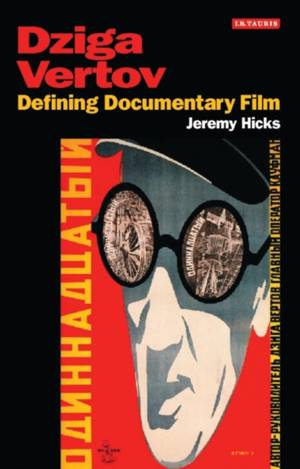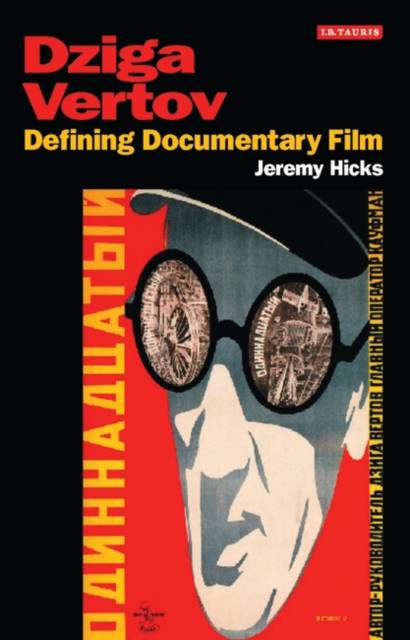
Bedankt voor het vertrouwen het afgelopen jaar! Om jou te bedanken bieden we GRATIS verzending (in België) aan op alles gedurende de hele maand januari.
- Afhalen na 1 uur in een winkel met voorraad
- In januari gratis thuislevering in België
- Ruim aanbod met 7 miljoen producten
Bedankt voor het vertrouwen het afgelopen jaar! Om jou te bedanken bieden we GRATIS verzending (in België) aan op alles gedurende de hele maand januari.
- Afhalen na 1 uur in een winkel met voorraad
- In januari gratis thuislevering in België
- Ruim aanbod met 7 miljoen producten
Zoeken
Omschrijving
Pioneer of political documentary and inventor of cinema verite, Dziga Vertov has exerted a decisive influence on directors from Eisenstein to Godard. Yet his reputation long rested upon a lone masterpiece, 'Man with a Movie Camera'. Recently, however Vertov has begun to be recognised as the creator of a body of innovative and distinct films and, as Jeremy Hicks argues, documentary as we know it today is unthinkable without the rediscovery of Vertov. This, the first book in English to cover the whole of Vertov's career, reveals him to be an auteur, allowing readers to combine the familiar and less familiar aspects of his filmmaking and thinking in a cohesive narrative. Jeremy Hicks demonstrates how Vertov draws on Soviet journalistic models for his transformation of newsreel into the new form of documentary film. Through analyses of "Cine-Pravda No 21" (Leninist Cine-Pravda), "Cine-Eye", "Forward Soviet!", "A Sixth Part of the Earth", "The Eleventh Year", "Man with a Movie Camera", "Enthusiasm", "Three Songs of Lenin", and "Lullaby", he shows how Vertov's greatest works combine authentic documentary footage ingeniously for tremendous rhetorical effect.
Today, with the energetic revival of interest in documentary film, Vertov's reflexive and overtly partisan films are of great relevance; but they need to be better known and understood. This is the purpose of "Dziga Vertov - Defining Documentary Film".
Today, with the energetic revival of interest in documentary film, Vertov's reflexive and overtly partisan films are of great relevance; but they need to be better known and understood. This is the purpose of "Dziga Vertov - Defining Documentary Film".
Specificaties
Betrokkenen
- Auteur(s):
- Uitgeverij:
Inhoud
- Aantal bladzijden:
- 208
- Taal:
- Engels
- Reeks:
Eigenschappen
- Productcode (EAN):
- 9781845113773
- Verschijningsdatum:
- 1/04/2007
- Uitvoering:
- Paperback
- Formaat:
- Trade paperback (VS)
- Afmetingen:
- 147 mm x 216 mm
- Gewicht:
- 272 g

Alleen bij Standaard Boekhandel
+ 121 punten op je klantenkaart van Standaard Boekhandel
Beoordelingen
We publiceren alleen reviews die voldoen aan de voorwaarden voor reviews. Bekijk onze voorwaarden voor reviews.









